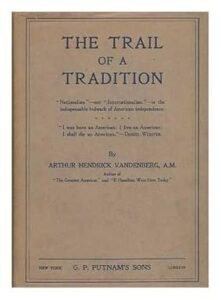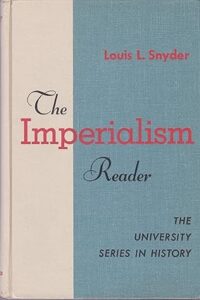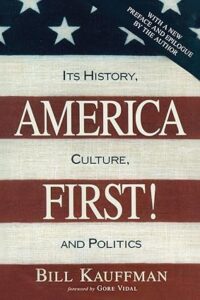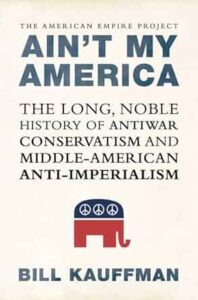Today, the meaning of American nationalism has been distorted by those who promote globalism and endless war under the guise of patriotism.
Yet true nationalism—rooted in the beliefs of early American leaders like Senator Arthur Vandenberg—was once a dominant force in U.S. politics.
Vandenberg himself warned against international entanglements, a sentiment echoed in George Washington’s Farewell Address.
However, as history unfolded, this nationalist spirit was challenged and co-opted by internationalist agendas.
From early 20th-century political debates to the emergence of voices like Bill Kauffman and Willis Carto, the struggle between nationalism and imperialism continues to shape America’s identity and global role.
The Roots of Genuine American Nationalism
True American nationalists—unlike the so-called “neo-cons”—carry forward a long-standing political tradition rooted in conservative values.
This tradition, especially strong within the Republican Party, was championed by the late Senator Arthur Vandenberg of Michigan.
He clearly stated that “Nationalism—not internationalism—is the indispensable bulwark of American independence.”
His words reflect a deep belief that national sovereignty and independence must come before global entanglements.
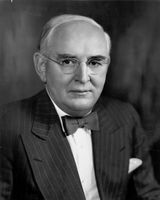
Discover the roots and revival of American populism and nationalism in our deep dive into how these movements challenge globalist power.
Vandenberg’s Forgotten Work on American Nationalism
Senator Vandenberg outlined his views on nationalism in a largely forgotten but still relevant book titled The Trail of a Tradition (G. P. Putnam’s Sons, 1926).
In this work, he traced the American nationalist tradition from the time of the Founding Fathers through President Woodrow Wilson’s push to create a world order via the League of Nations.
Vandenberg’s book helps define how American engagement with the world evolved—and why nationalism once stood as a counterweight to global control efforts.
Vandenberg’s Shift Toward Internationalism
Despite his early nationalist stance, Senator Vandenberg eventually changed course.
Evidence suggests that he may have been blackmailed and influenced by British intelligence operatives.
As a result, he moved away from his strong nationalist roots and became a vocal supporter of broad U.S. involvement in international affairs.
His shift marked a turning point and highlighted how powerful foreign interests could sway even the most steadfast defenders of American independence.
Vandenberg’s Early Years and the Rise of Imperialism
Before his shift, Vandenberg was firmly planted in the nationalist camp. At that time, true nationalism held a respected place in American political life, with support from members of both major parties.
It reflected a widespread belief in preserving U.S. sovereignty and avoiding unnecessary foreign entanglements.
Yet, to truly understand nationalism, one must also examine its opposite—imperialism. Imperialism stands in direct opposition to nationalism.
It is not just a policy but a core pillar of the modern New World Order, which seeks to erode national boundaries in favor of global control.
Imperialism Misunderstood by American Conservatives
During early research into American conservatism and Republican thought, it became clear that many viewed terms like “imperialism” and “imperialist” as language used only by communists.
However, this belief was entirely misplaced.
In reality, imperialism forms the backbone of the internationalist agenda and the broader goals of the New World Order.
Imperialism directly opposes nationalism.
Where nationalism promotes sovereignty and self-determination, imperialism seeks to override borders and identities in favor of centralized global control.
Genuine nationalism, therefore, must stand firmly against imperialism in all its forms.
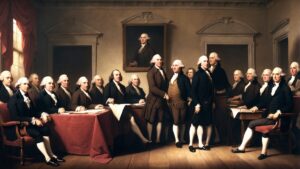
A Key Resource on Imperialism and National Resistance
One valuable but little-known book that explores imperialism in depth is The Imperialism Reader: Documents and Readings on Modern Expansionism (D. Van Nostrand, 1962), edited by Louis L. Snyder.
This collection features international perspectives and writings from authors around the world, offering a broad view of the imperialist agenda and its global impact.
When studied carefully, this book reinforces the truth about imperialism—it is the natural enemy of nationalism.
Patriots in every country who fight to preserve their national identity and independence are, by nature, opponents of imperialism.
Imperialism: Not Just a Communist Term
Although the term “imperialist” appears often in communist rhetoric, it is not exclusive to communist ideology.
The idea that only communists oppose imperialism is a widespread misunderstanding—especially among American nationalists.
In fact, labeling critics of imperialism as “communists” has allowed the true meaning of the term to be obscured.
Ironically, many neo-conservatives who call themselves “nationalists” are actually supporting internationalist goals.
Whether knowingly or not, they often promote the same imperialist policies that drive the New World Order agenda they claim to oppose.
Bill Kauffman’s Defense of Nationalism and Anti-Imperialism
For those seeking a deeper understanding of how nationalism and anti-imperialism fit within America’s traditional and constitutional values, the works of Bill Kauffman are essential reading:
- America First: Its History, Culture and Politics (Prometheus Books, 1995)
- Ain’t My America: The Long Noble History of Anti-War Conservatism and Middle-American Anti-Imperialism (Metropolitan Books, 2008)
Both books are rich in detail, highly readable, and filled with historical context. Kauffman traces America’s nationalist roots from the early Republic to the anti-war resistance before World War II.
He also revisits the role of figures like Col. Charles A. Lindbergh, who warned that the push for U.S. entry into the war was being driven by “the British, the Jewish, and the Roosevelt administration.”
These books serve as valuable resources and could be offered with affiliate links for readers interested in reclaiming America’s non-interventionist and nationalist past.
The America First Committee and Willis A. Carto’s Legacy
Bill Kauffman’s books also highlight the America First Committee, a diverse coalition of liberals, conservatives, Democrats, Republicans, populists, and elitists united in opposition to imperialism, internationalism, and war-mongering.
This broad alliance fought to keep America focused on its own interests and avoid unnecessary foreign conflicts.
While Kauffman’s works honor the history of the nationalist movement, another key figure in preserving this tradition is Willis A. Carto.
Over more than sixty years, Carto dedicated himself to sustaining American populism and nationalism.
His tireless efforts helped keep these ideas alive and influential in debates over U.S. domestic policy and its role in world affairs.
Willis A. Carto: A Tireless Critic of the New World Order
Willis A. Carto was an early and outspoken critic of the New World Order—long before the term became widely known.
He fiercely opposed war and imperialism and dedicated his life to promoting nationalism for all peoples, which he called “international nationalism.”
Carto’s commitment knew no bounds. Through thousands of books, newspapers, magazines, and monographs, he constantly pushed a nationalist message.
His weekly newspapers, The Spotlight and American Free Press, along with widely read journals like The Barnes Review, influenced millions of readers in the U.S. and around the world.
Many political figures today credit Carto’s publications with shaping their views and political journeys.
The Influence of Willis Carto on Political Figures
One notable example of Willis Carto’s impact is David Duke, a well-known figure on the so-called “far right.”
Duke has openly stated, both publicly and privately, that his personal worldview and early political thinking were deeply shaped by the books and publications sponsored by Carto.
This example highlights the broad reach and lasting influence of Carto’s nationalist message.
Willis Carto’s Wartime Experience and Survival
Willis Carto’s place in history is partly shaped by his remarkable survival during World War II.
Serving on the front lines in the Pacific, he narrowly escaped death on at least two occasions.
In one incident, a Japanese sniper shot him—had the bullet been an inch to the left, it would have pierced his heart. Fortunately, it struck his arm instead.
On another occasion, a grenade thrown by a Japanese soldier exploded near Carto, but he emerged completely unscathed.
These close calls marked the beginning of a long journey that would lead Carto to become a powerful voice against war and imperialism.
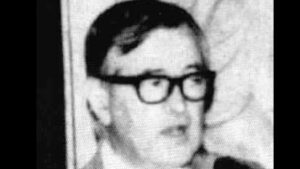
From Combat Veteran to Outspoken Critic of War
After the war, Willis Carto transformed from a wounded soldier into one of the most vocal critics of America’s entry into World War II.
He viewed the conflict as both needless and senseless—part of a larger global agenda designed to crush nationalism and replace it with international control.
Carto became a leading force in a revisionist movement that continues to grow.
His efforts have prompted many Americans—and others around the world—to reexamine the true causes and consequences of the war.
It’s worth reflecting on how different the political landscape might look today if Carto had died in combat.
Would someone else have stepped up to lead the charge against imperialism and globalism as he did? We can only wonder.
Carto’s Post-War Awakening and Anti-War Stance
Unlike many of his fellow World War II veterans, Willis Carto did not accept the official narrative without question.
Though he admitted he once feared Adolf Hitler might conquer the world, his return home marked the beginning of a deep personal investigation.
He began to ask difficult questions about America’s true reasons for entering the war.
Carto’s inquiries soon expanded beyond World War II.
He came to doubt the necessity of nearly every major U.S. military conflict of the 20th century.
Long before it was popular—even among conservatives—Carto spoke out against U.S. involvement in Southeast Asia.
While Cold War liberals pushed for more entanglement, Carto warned that such actions would only lead to disaster.
The Vietnam War would later prove him right in the eyes of many.
Building a Nationalist Movement Beyond Left and Right
Willis Carto made a deliberate effort to distinguish traditional American nationalism from mainstream Republican-style conservatism.
He rejected the outdated political labels of “right” and “left,” viewing them as obstacles to genuine national renewal. Instead, he focused on creating a populist, nationalist movement grounded in American history and principle.
Through the Liberty Lobby—which he founded in 1955—Carto worked tirelessly to warn against the dangers of internationalism.
He placed nationalism at the center of a uniquely American philosophy, drawing inspiration from Thomas Jefferson’s populism and George Washington’s non-interventionist foreign policy outlined in his Farewell Address.

Washington’s Wisdom as a Foundation for Stability
Carto believed that George Washington’s advice in his Farewell Address offered more than just guidance on foreign policy—it was a blueprint for national strength and stability.
By avoiding foreign entanglements and focusing on America’s own interests, Carto argued, the country could maintain peaceful relations abroad while fostering security and prosperity at home.
For Carto, true nationalism meant honoring this founding vision.
Reviving Washington’s Warnings Through Modern Media
Perhaps more than any other American—even George Washington himself—Willis Carto used the media to keep Washington’s warnings alive in the public mind.
With newspapers, journals, and other platforms at his command, Carto tirelessly echoed Washington’s cautions against foreign entanglements and emotional alliances with other nations.
Carto often quoted this powerful passage from Washington’s Farewell Address.
In it, Washington warned that favoritism toward foreign nations could lead to unnecessary wars, unfair concessions, and corruption at home.
He stressed the need for impartiality, commercial independence, and caution in foreign affairs.
Carto believed that following this advice would protect American sovereignty, prevent exploitation by foreign interests, and preserve the integrity of a free republic.
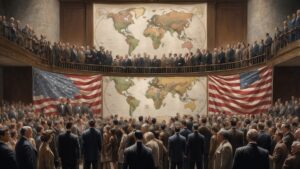
Nationalism Rooted in Respect and Self-Reliance
In line with George Washington’s vision, Willis Carto argued that true nationalists—regardless of their country—believe in building their nations from within.
This meant preserving cultural heritage, defending sovereign borders, and putting national interests above foreign entanglements.
According to Carto, real nationalists do not seek to dominate other nations through war or empire.
Instead, they honor the right of other peoples to pursue their own national identity and independence.
In his view, respecting the nationalism of others was not only moral—it was essential to global peace and stability.
Carto’s Warning About Global Control by Elites
Willis Carto firmly believed that powerful internationalist elites—what he called “plutocrats”—opposed nationalism not out of principle, but because it blocked their path to profit and control.
He charged that these profiteers wanted to erase national borders and merge all countries into what he described as a “Global Plantation.”
In this system, nations would lose their independence and become subordinate to a centralized global power controlled by financial interests.
For Carto, nationalism was the last line of defense against this kind of domination.

The False Promise of Internationalism
Carto viewed internationalism as a misguided fantasy. He believed it appealed to poets, dreamers, and idealistic religious leaders who imagined that erasing all national and racial boundaries would bring eternal peace.
But to Carto, this vision was dangerously unrealistic—a utopian dream with no grounding in political reality.
In practice, Carto warned, internationalism led only to chaos: confusion, social unrest, and violence. He believed global elites used it deliberately.
By promoting multiculturalism and dismantling national borders, they advanced their goal of establishing a world super state—a centralized system he and others called the “New World Order.”
This “Global Plantation” would serve the interests of the plutocrats, not the people.
The New World Order as Global Enslavement
Willis Carto summarized his warning in stark terms: the New World Order was nothing less than a push for world government.
This global system, he argued, would be directed by plutocrats—wealthy elites determined to seize control of the world’s natural resources and dominate its people.
According to Carto, this agenda would result in the effective enslavement of nations.
It would be carried out through a powerful international bureaucracy, handpicked and controlled by financial elites.
For him, the fight against the New World Order was a fight to preserve freedom and national sovereignty.

Trade: The Defining Divide Between Nationalists and Internationalists
Another key point of disagreement between true nationalists and internationalists lies in trade policy.
Willis Carto believed that the debate over free trade versus protectionism is central to understanding who genuinely supports nationalism.
For Carto, this issue goes beyond economics—it reveals the core values and loyalties of political leaders.
Real nationalists prioritize protecting their country’s industries and workers, while internationalists favor free trade policies that often undermine national sovereignty.
The Clash Over Trade and National Sovereignty
The debate over free trade versus protectionism highlights a critical split between true nationalism and the distorted version pushed by internationalists.
Traditional nationalists advocate protectionism to safeguard their country’s sovereignty and economic independence.
However, many self-proclaimed “conservatives” within the Republican Party face a real dilemma.
While they claim to support “America First,” their backing of free trade policies often undermines that very principle.
By favoring multinational trade agreements and global financial interests, they sacrifice American sovereignty, revealing a fundamental conflict between free trade and true nationalism.
Free Trade’s Complex and Controversial History
Free trade is not simply an economic policy; it has deep historical connections to global power structures.
Its roots trace back to British imperialism, heavily influenced by the Rothschild banking dynasty and the spread of global capitalism.
Surprisingly to many American conservatives, free trade also aligns with the ideals of communism—the very ideology often opposed by conservatives.
This complex background reveals that support for free trade can sometimes contradict traditional nationalist and conservative principles.
Karl Marx’s Support for Free Trade and Its Implications
In 1848, Karl Marx—the founder of communism—expressly supported free trade.
He argued that it “breaks up old nationalities” and intensifies conflicts between the proletariat (workers) and bourgeoisie (small business owners).
Marx believed free trade would accelerate social revolution by dismantling traditional national boundaries.
This historical fact reveals a surprising connection: free trade serves revolutionary goals that often clash with nationalist ideals.
Free Trade and Its Contradiction with Nationalism
Marx famously stated, “the free trade system hastens the social revolution.”
This means that free trade is a key tool in breaking down old national identities and promoting radical social change.
Today, many conservatives support free trade, often without realizing that this aligns with a core Marxist goal.
This raises a crucial question: can these conservatives truly be called “nationalists” in the traditional sense?
Based on this contradiction, the answer appears to be no.
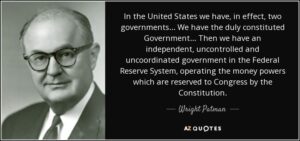
Rediscovering True Nationalism in a Globalized World
This exploration reveals that genuine American nationalism stands in clear opposition to internationalism and the imperial ambitions of a New World Order.
From the early ideals of Senator Arthur Vandenberg to the tireless efforts of Willis Carto, true nationalism centers on preserving national sovereignty, cultural heritage, and economic independence.
It rejects the globalist agenda of erasing borders and promoting free trade at the expense of the nation’s well-being.
Understanding the historical and ideological roots of nationalism—and its distinction from modern political movements—is essential today.
As economic and political pressures push toward globalization, recognizing and defending true nationalist principles remains crucial for maintaining America’s independence and identity.

